Speakers
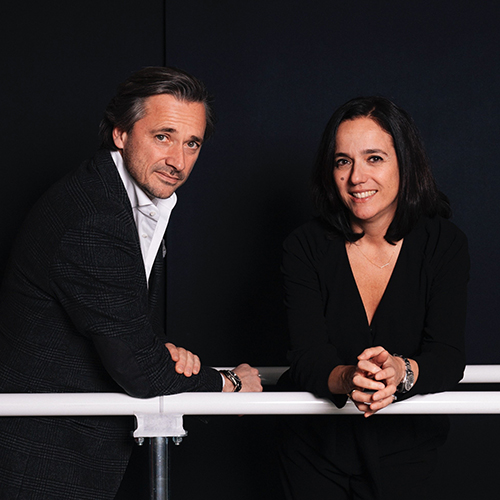
Jocelyne Bloch & Grégoire Courtine
Defitech Center for Interventional Neurotherapies, Swiztertland
Jocelyne Bloch is neurosurgeon at the University Hospital Lausanne (CHUV) where she leads the functional neurosurgery unit, while Grégoire Courtine is a neuroscientist with a background in physics. Jocelyne and Grégoire are Professor within the NeuroX institute of the Ecole Polytechnique Fédérale de Lausanne (EPFL), within the neurosurgical department of CHUV, and at the Faculty of Medicine of the University of Lausanne (UNIL). Together, they founded the Defitech Center for Interventional Neurotherapies, named .NeuroRestore, which develop bioengineering strategies involving neurosurgical interventions to restore neurological functions. In 2014, they also co-founded ONWARD Medical (Euronext: ONWD) with the aim to translate the neurotherapies developed at .NeuroRestore into clinical treatments. Jocelyne and Grégoire are known worldwide for the conception of neuroprosthetic implants that restored walking in people with chronic paralysis.
Abstract: Reversing paralysis
During the past decade, we have combined our respective expertise in neurosurgery, neurology, neuroscience and neuro-engineering to develop neurotherapies requiring neurosurgical interventions to regulate or restore neurological functions following spinal cord injury and neurodegenerative diseases. These therapies were developed based on the discovery of the mechanisms of our treatment paradigm in rodent models before being tested in nonhuman primate models, and eventually humans. For example, This unconventional collaboration allowed us to understand the mechanisms through which epidural electrical stimulation of the spinal cord regulates the activity of specific neuronal populations, and how we translated this mechanistic understanding into precise neuromodulation therapies involving brain-computer interface technologies to control the stimulation that restored walking and upper limb functions in people with spinal cord injury or Parkinson’s disease. During our lecture, we will not only summarise this journey, but also map the next steps to turn these breakthroughs into widely available treatments.

Robert Gaunt
University of Pittsburgh, USA
Robert Gaunt is an Associate Professor in Physical Medicine and Rehabilitation at the University of Pittsburgh. Dr. Gaunt earned a BEng in Mechanical Engineering from the University of Victoria and a PhD in Biomedical Engineering from the University of Alberta. His primary research interests are in sensorimotor control of the hand and bladder and developing neuroprosthetics to restore function to these systems after injury and disease. This work encompasses studying sensorimotor control in the central and peripheral nervous systems and investigating how biomimetic design principles can be used to develop neuroprosthetic technologies aimed at restoring sensory, motor, and autonomic functions for people with disease or injuries including spinal cord injury and limb loss. The hand and bladder are scientifically linked by the powerful role that somatosensation has on both reflex function and consciously mediated behaviors, while the functional importance of these two systems are frequently highlighted by people living with spinal cord injury. Active research topics include developing bidirectional implantable brain computer interfaces to restore movement and sensation to people with upper-limb paralysis as well as creating novel neural interfaces to regulate bladder function. He holds a number of patents, and his work has been recognized by the National Academy of Engineering and covered by numerous national and international media outlets.
Abstract: Bidirectional brain-computer interfaces
After a high-level spinal cord injury, people consistently rank improved arm and hand function as their highest rehabilitation priority. Over the last decade we have developed intracortical brain-computer interfaces that enable people to achieve complex control of robotic limbs and have augmented these motor control capabilities with artificial tactile sensations that create a sense of touch in a persons own paralyzed hand. These bidirectional BCIs enable upper limb control that in the best cases can approach able-bodied performance levels on simple reach and grasp tasks. In this talk, I will describe how signals can be extracted from the cortex to control complex prosthetic movements, and will describe the nature of stimulation-evoked tactile percepts, including their stability over time and their impact on task performance. I will also discuss how new stimulation strategies enhance the complexity and naturalness of perceived sensations, can replicate properties of real-world objects, and can create sensations of edges and motion. Finally, I will discuss outstanding challenges facing the future of intracortical brain-computer interfaces and what advances will be required to meaningfully improve upper limb function in people living with spinal cord injury.
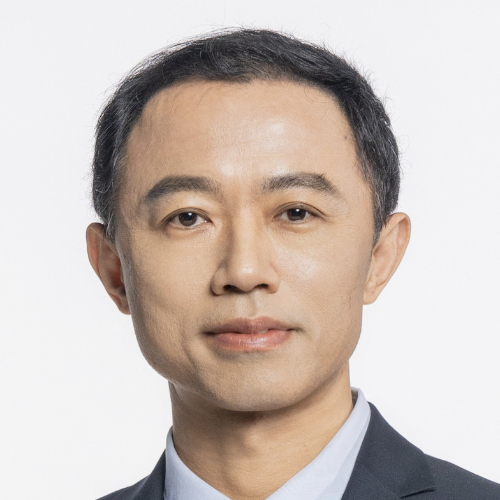
Bo Hong
Tsinghua University, China
Dr. Bo Hong received his Ph.D. degree of Biomedical Engineering from Tsinghua University in 2001. From 2004 to 2005, he was a visiting scientist in the Department of Biomedical Engineering and the Center for Neural Engineering at Johns Hopkins University, USA. He is now full professor with School of Biomedical Engineering, Tsinghua University, and an investigator of McGovern Institute for Brain Research at Tsinghua. His main research interests are brain computer interface and language network in human brain. His team designed and developed minimally invasive BCI – NEO system and conducted the first-in-human clinical trial successfully in 2023. He has co-authored more than 80 papers on Nature Neuroscience, PNAS, Nature Communications, NeuroImage, Journal of Neuroscience etc. He has served as the Associate Editor of IEEE Transactions on Biomedical Engineering and IEEE Transactions on Neural Systems and Rehabilitation Engineering.

Cory Inman
University of Utah, USA
Dr. Cory Inman is the director of the Immersive Neuromodulation and Neuroimaging (INMAN) Laboratory in the Psychology Department at the University of Utah. He received his BA in Psychology from Georgia State University and his PhD from Emory University. He completed his first postdoctoral fellowship in the Neurosurgery department at Emory University and a second postdoctoral fellowship at UCLA. He has broad interests in helping to establish approaches that push our understanding of emotion and memory from the laboratory into the wild, real world. The INMAN Lab is currently undertaking studies examining the use of direct brain stimulation to the human amygdala for episodic memory enhancement and direct brain recordings of deep memory structures, like the hippocampus during, navigation and autobiographical memory encoding in real-world settings. Outside the lab, he spends his time playing with his 2 kids, playing guitar, playing basketball, and exploring as many outdoor adventures as possible including white water rafting, snowboarding, hiking, and climbing.
Abstract: Capturing and enhancing episodic memories made in the wild
The ultimate goal of neuroscience is to understand and explain real-world behavior in terms of brain activity and to use these insights to develop therapeutic approaches for neural disorders. The experience of emotion shapes our memories of the past, decisions during the present, and predictions of the future based on our significant past experiences. Recent work has examined the effects of direct electrical stimulation to the human amygdala on the autonomic nervous system, emotional experience, and long-term declarative memory. First, we show that brief, low-amplitude, direct electrical stimulation of the human amygdala enhances long-term declarative memory without eliciting an emotional response. Second, we will describe a novel paradigm using mobile recording devices synchronized with intracranial EEG recordings in epilepsy patients with an implanted deep brain recording system while patients perform real-world behaviors. Using this system, we can study the neural basis of human activities, such as navigation and real-world memory encoding, in a way that captures the complexity, scale, and functional characteristics of real-world experiences. We asked five participants to learn a 0.75-mile route around campus while hippocampal electrophysiology was recorded. Initial findings suggest changes in temporal lobe activity around environmental and behavioral context changes. Combining these lines of work, future studies will investigate the potential of direct brain stimulation to enhance episodic memory for real-world experiences.
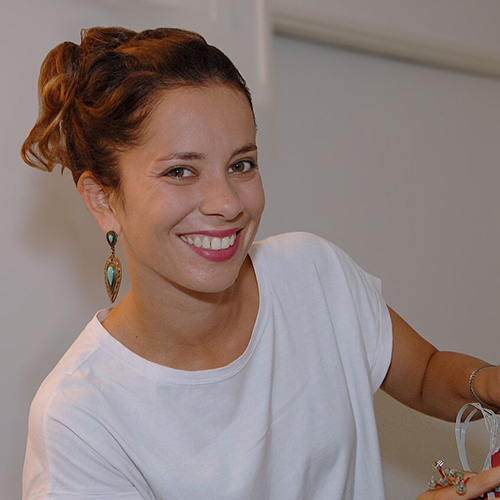
Camille Jeunet-Kelway
Aquitaine Institute for Cognitive and Integrative Neuroscience (INCIA), Univ. Bordeaux & CNRS, France
Camille Jeunet-Kelway received her PhD in cognitive sciences in 2016 at the University of Bordeaux, France. After a post-doctoral fellowship in Inria (Rennes, France) and EPFL (Geneva, Switzerland), she was recruited as a tenured CNRS Research Scientist. In 2021, she has joined the institute for cognitive and integrative neurosciences (INCIA) in Bordeaux, where she leads interdisciplinary research on the use of EEG-BCIs to improve or restore cognitive and motor abilities, both for clinical (stroke patients and patients with Parkinson disease) and non-clinical (athletes) populations. She is particularly interested in studying the learning mechanisms underlying neurofeedback training as well as the acceptability of neurofeedback procedures and BCI technologies. Camille Jeunet-Kelway has received 3 PhD awards, the European Label as well as 5 national fundings from the French research agency for her research. In 2022 she was awarded the Early Career Award in neuroscience from the BCI Society. Since 2024, she is deputy head of the SMART reasearch and innovation plateform, an “intelligent, connected gym”, dedicated to sports and movement sciences.
Abstract: BCI-based neurofeedback training procedures to restore or improve motor skills: a user-centred approach
Beyond the control of diverse applications, EEG-based BCIs can be used to improve or restore skills through neurofeedback training (NFT) procedures. NFT procedures consist in identifying neuromarkers that underlie target abilities (e.g., cognitive or motor skills), and in training one to voluntarily self-regulate those neuromarkers in order to improve the associated skills. During the training, users/patients are fed-back with information regardingthe modulations of their brain activity. This feedback is meant to enable them to optimise their self-regulation strategies and thereby their performance. Thus, a major challenge is to determine how to maximise the relevance of the feedback and by that the NFT efficiency.In this keynote, I will introduce the research we are leading on that topic, especially in the context of NFT procedures targeting sensorimotor rhythms to improve or restore motor skills. I will describe the 3-step user-centred approach that we develop, namely i) basic neuroscience research to identify relevant and reliable neuromarkers, ii) applied research in ergonomics to optimise the feedback and iii) translational research in humanities to maximise acceptability and usability. I will illustrate this approach through 3 domains of application: motor rehabilitation after stroke, the reduction of motor symptoms in Parkinson’s disease and the improvement of athletic performance.
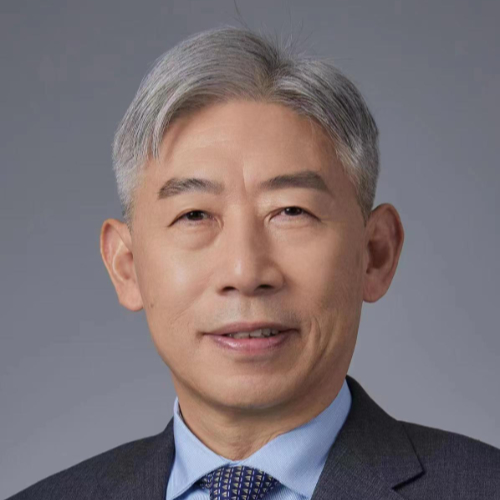
Bao-Liang Lu
Shanghai Jiao Tong University, China
Bao-Liang Lu received his PhD in electrical engineering from Kyoto University, Kyoto, Japan, in 1994. Since August 2002, he has been a full professor at the Department of Computer Science and Engineering, Shanghai Jiao Tong University, China. He currently serves as the Director for the Center for Brain-Like Computing and Machine Intelligence, the Key Laboratory of Shanghai Education Commission Intelligent Interaction and Cognitive Engineering, and Ruijin-Mihoyo Laboratory. He received the 2018 IEEE Transactions on Autonomous Mental Development Outstanding Paper Award and the 2021 Best of IEEE Transactions on Affective Computing Paper Collection. He is also the Associate Editor of the IEEE Transactions on Affective Computing and Journal of Neural Engineering and an IEEE Fellow. His research interests include deep learning, large EEG model, emotion artificial intelligence, and affective brain-computer interface.
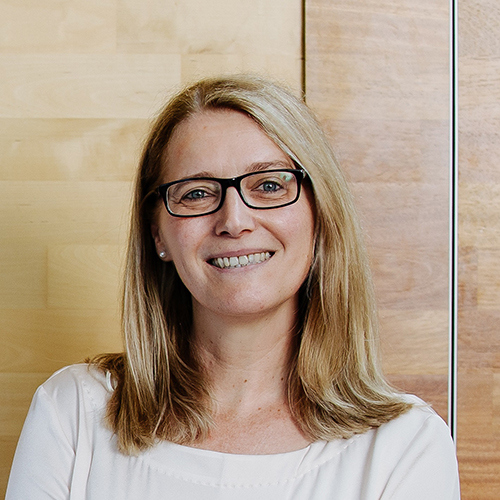
Natalie Mrachacz-Kersting
University of Freiburg, Germany
Prof. Dr. Natalie Mrachacz-Kersting, a member of IEEE, received her Ph.D. degree in biomedical engineering from Aalborg University in 2005. She currently holds the Chair for Neuroscience and Neuroscience in Sport at the Albert-Ludwigs University of Freiburg and is a member of the BrainLinks-BrainTools Cluster of Excellence at IMBIT, Albert-Ludwigs University of Freiburg. Dr. Mrachacz-Kersting serves on the Executive Committee of the IEEE Engineering in Medicine and Biology Society (EMBS) as the Vice President-elect for Member and Student Activities. She is also the Chair of the IEEE Women in Biomedical Engineering (WI(BM)E), member of the Steering Committee of IEEE Brain Technical Community, and the Deputy Editor-in-Chief of the IEEE Transactions on Neural Systems and Rehabilitation Engineering Journal. She has previously held positions at Aalborg University in Denmark, FH Dortmund in Germany, and the University of Auckland in New Zealand. Dr. Mrachacz-Kersting’s research focuses on medical technology, biomedical engineering, and neuroscience. She has authored over 80 peer-reviewed journal articles, more than 130 conference papers and abstracts, ten book chapters, and one book. Her current projects primarily involve Brain-Computer Interfaces (BCIs) for patient populations, including those suffering from stroke or ALS. Dr. Mrachacz-Kersting received several awards including the international BCI award in 2017.
Abstract: Brain-Computer Interfaces Designed for Neurorehabilitation
Brain-Computer Interfaces (BCIs) have emerged as a promising tool for the restoration and replacement of lost motor function in patient populations. A variety of control signals have been extracted from the ongoing electroencephalographic (EEG signal) both in the frequency and time domain. In this talk I will present the approach we have taken from the basic idea and the underlying neurophysiology to the final BCI tested in clinical populations. I will demonstrate why knowledge of the mechanisms behind memory and learning is vital for the development of rehabilitation technology, specifically BCIs, and further how factors such as plasticity induction, fatigue or even tremor may greatly impact on the system accuracy.
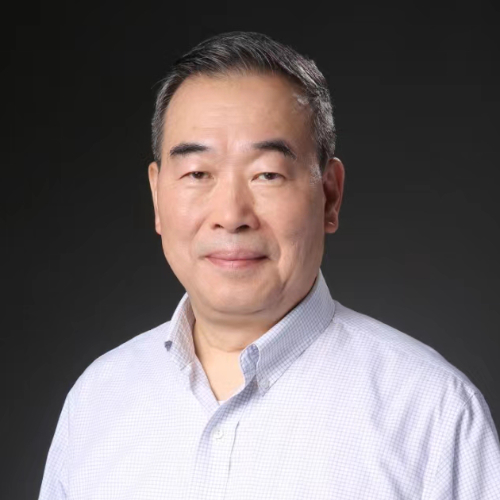
Mu-ming Poo
Chinese Academy of Sciences & Shanghai Center for Brain Science and Brain-Inspired Technology, China
Mu-ming Poo is the Scientific Director of Institute of Neuroscience, Chinese Academy of Sciences (CAS), Director of Shanghai Center for Brain Science and Brain-Inspired Technology, and Paul Licht Distinguished Professor in Biology Emeritus at University of California, Berkeley. He studied physics at Tsinghua University in Taiwan and received PhD in biophysics from Johns Hopkins University in 1974. During 1976-2012, He had served on the faculty of UC Irvine, Yale, Columbia, and UCSD, and UC Berkeley. He was the founding director of Institute of Neuroscience, CAS (1999-2019), and a member of Chinese Academy of Science, Academia Sinica, and Hong Kong Academy of Science, and an international member of US National Academy of Science. He was awarded Ameritec Prize, International Science & Technology Cooperation Award of P. R. China, and Gruber Neuroscience Prize. Poo’s research interest includes axon growth, synaptic plasticity, and the use non-human primates to study higher cognitive functions and human brain disorders. He is the Executive Editor-in-Chief of National Science Review and the editorial board member for many journals, including Neuron and Progress in Neurobiology.
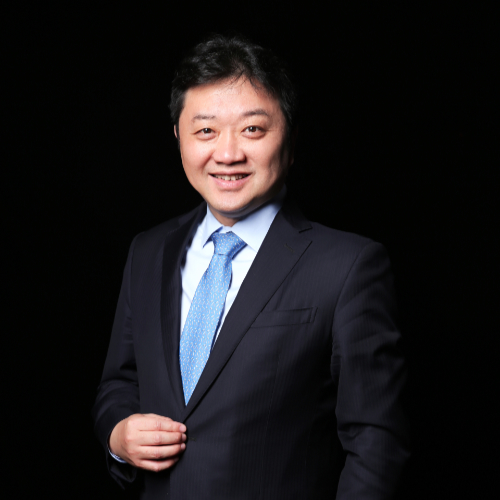
Mao Ying
Huashan Hospital, China
Dr. Ying Mao is a highly respected neurosurgeon at Huashan Hospital in Shanghai, China. He now serves as the director of the National Center for Neurological Disorders, the chairman-designate of the Neurosurgery Section of the Chinese Medical Association and the president of Huashan Hospital. With years of experience under his belt, Dr. Mao is known for his expertise in treating complex neurological conditions and performing advanced brain surgeries. Patients appreciate his compassionate approach and his dedication to staying at the forefront of medical technology and techniques. Beyond the operating room, Dr. Mao is an avid researcher, contributing significantly to the field of neurosurgery with numerous publications and studies. He’s also a beloved mentor, guiding the next generation of neurosurgeons with his wealth of knowledge and experience. When he’s not working, Dr. Mao enjoys spending time with his family, exploring new culinary delights, and indulging in a good book. His commitment to his patients, coupled with his warm personality, makes him a standout figure in the medical community.

Alexander von Lühmann
Technische Universität Berlin, Germany
Alexander von Lühmann is currently head of the “Intelligent Biomedical Sensing” research group at TU Berlin’s Machine Learning department and BIFOLD. He is also a visiting researcher at the Neurophotonics Center of Boston University (BU NPC) and the Lead Technology Advisor at NIRx Medical Technologies. Before this, he was the Chief Science Officer and R&D Director at NIRx for 2,5 years, a post-doc at Boston University, a visiting researcher at Harvard Medical School, and the Chief Technology Officer at Crely, a healthcare startup based in the US and Singapore. He is a member of the ISO/DIN, SfNIRS, OPTICA, OHBM and VDI. His contributions to the field have been recognized by the fNIRS Society (Early Investigator Award 2022), the TU Berlin BIMOS graduate school (PhD Award 2019), the German Society for Biomedical Engineering (DGBMT Klee Award 2018) and the IEEE Biomedical Engineering Society (Special Feature & Cover Article 2017). He received his PhD (Dr.-Ing.) with distinction in 2018 from TU Berlin, and his M.Sc. and B.Sc. degrees in Electrical Engineering from Karlsruhe Institute of Technology in 2014/11.
Abstract: Progress and Challenges in multimodal acquisition and single-trial analysis for brain imaging in the everyday world with wearable fNIRS and DOT
Advances in wearable functional near-infrared spectroscopy (fNIRS) and diffuse optical tomography (DOT) are rapidly expanding opportunities to complement fMRI by studying the brain in ecologically valid environments. Transitioning from well-controlled laboratory settings to the dynamic, complex, and multisensory environments of the everyday world presents a range of significant challenges, particularly in signal acquisition and processing. However, the increasing ease of acquiring larger data volumes also paves the way for new, powerful data-driven approaches that can be used as a remedy. A typical goal is to improve the contrast of the hemodynamic response by better differentiating evoked from non-evoked and cerebral from non-cerebral physiological activity and behavior. This is particularly relevant for biomarker extraction and single-trial analysis, e.g., in brain-computer interfaces or neuroergonomics. In my talk, I will examine recent advances in mobile brain monitoring using fNIRS/DOT, discuss some of the current data science challenges, and demonstrate how we have begun to tackle them.
